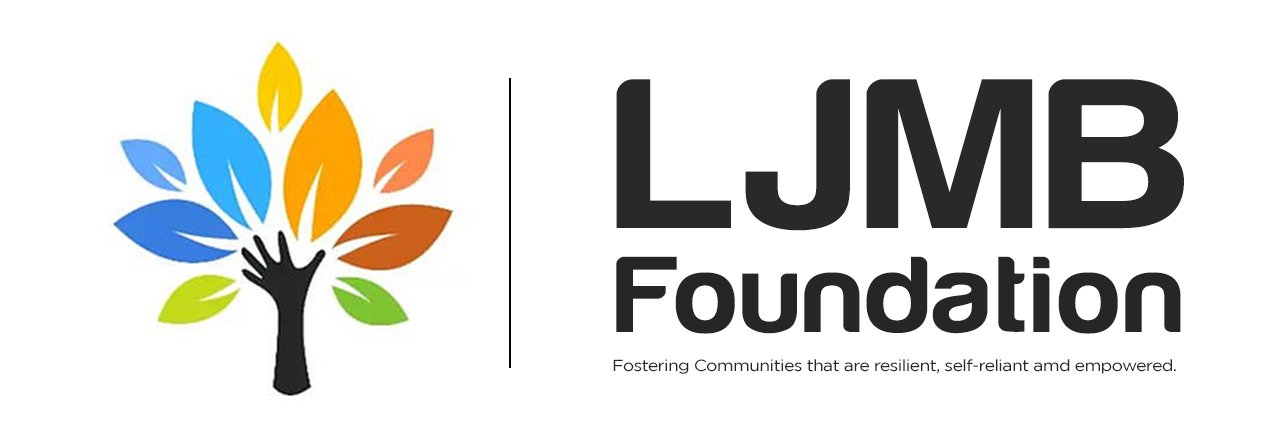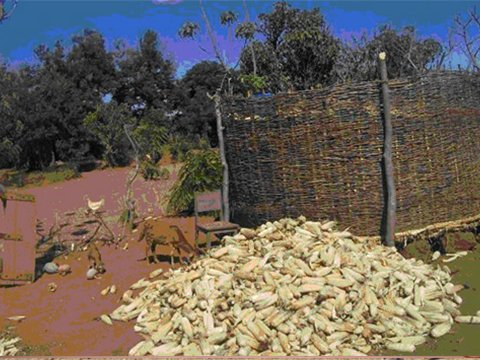It is February, a month which is considered by most Malawians as the month of hunger. Everyone in Malawi associates February with hunger, especially in the villages. My brother was born in February, and as far as I could remember it was easier for the people in the village to remember the month in which he was born as the month of hunger - “anabadwa mwezi wa njala”.
Malawi relies on rain fed agriculture, which usually runs from December to April. This implies that most Malawians plant their crops around December and start eating the produce from the farms somewhere around end March/April. If we take into account the fact that crops are grown once per year with the harvest period starting from end March, it means that there is plenty of food during the harvest period and the food becomes less and less as the next harvest season approaches and February is the last month before the harvest period. No wonder February is called “mwezi wa njala” (month of hunger) because that’s when most Malawians are emptying their pantries or silos “nkhokwe”.
…not business as usual…
It therefore comes as no surprise that I am writing this article about starvation in Malawi in the month of hunger, February. Food shortages are a common sight during this month. Something that we have known expected and accepted as a norm for as long as I recall.
Even amongst businessmen, February is not the best month for conducting business in Malawi especially if you use some imported products because this is when the Malawi Kwacha is at its lowest point compared to the other foreign currencies.
However, this year things are different. The extent of the food shortage in the country is overwhelming, more than usual. And the future does not look promising either.
…why…
Some parts of Malawi in the last farming season were faced with droughts, dry spells, flash floods and heavy rains which resulted into less produce being harvested from the farms. Consequently, most farmers did not produce enough food to last them the whole year – as close to the next harvest season as possible. On top of that there is the issue of the ever depreciating Kwacha and the El Niño – read my previous article on this titled “…Impact of El Niño Phenomenon on Malawi…”. Besides, lest not forget the fact that most families rely on a piece of land which is less than a hectare to produce food and income to buy other necessities for an entire family of around 6 people. Bear in mind too, that this piece of land is cultivated only once per year.
…the picture on the ground…
Over the last days, most prominent figures have been talking about hunger problems in Malawi including our president, His Excellency Arthur Peter Muntharika. The fact that these figures are talking about the starvation of Malawians in public regardless of how they are phrasing it, it just confirms what the majority has been experiencing already for some time now – lack of food. Whether the situation is sugar-coated by government officials or exaggerated by the opposition, the fact is that Malawians are starving.
The long queues at ADMARC depots across the country and the rationing of amount of grains that an individual can buy from these depots just proves how bad the situation is. There are rumours that some depots do not have the grains (maize) and that people are spending most of their time on the queues just to buy a few kilos of maize only to come back a few days later because of the rationing.
…my sentiments…
It is a bit ironic for a country that has been independent since 1964 (with no civil wars at all) and whose majority relies on agriculture to be faced with famine. I honestly do not understand how over and over again we tend to be going through the same cycle. How we cannot somehow find a way to break this cycle.
I get it that mother nature is in one way or another to be partially blamed for our current misfortunes but let us be honest here, El Niñois not the only problem. It just can’t be.
We can point fingers at the current government for not doing its part. But the same as with the previous administrations, faults have been made when it comes to ensuring the food security of our nation. Administration after administration, we have failed to break the February cycle as mwezi wa njala. Some years have been better than others but the bottom line still remains that our government policies have not been able to pull us out of this unpleasant cycle.
And then there is us, the citizens. Whether we like it or not, we are partially to blame. Our actions sometimes do not demonstrate a need to prosper. We like to have everything within a hand’s reach. We do not like to put in too much effort or spend time planning about the future. If we can’t plan, how can we take care of situations like these? If we can’t take good care of the things we have or invest a bit in the little we have, how do we expect to earn big when the harvest season comes? I remember when I was young, my grandfather had an orchard with different fruits like plums, guavas, peaches, mangoes and oranges. As I am writing this article, that orchard is gone. We now have to buy plums imported from RSA at a high price when some years ago we were picking them from our own orchard. These are some of the things that I do not understand. Where did things go wrong? I heard that there was a time when Malawi was exporting not importing farm produce from RSA. Why couldn’t we continue with that? Is it really just the government’s bad policies or our way of looking at life also has a part in that? It is up to all of us to find an answer to that….
…solutions…
We all agree that currently there is no food in Malawi and that our economy is in tatters. The damage has been done already. There is nothing much that can be done at this moment to correct the situation apart from donating food items to those in need and ensuring that the ADMARC depots have enough grains to be sold to the public.
Every person you share a plate of nsima with during this period will be grateful. Donations do not always have to come in big packages that have to be publicized. Every small gesture made means a lot to the beneficiaries. As a Malawian, I know that almost everyone is always willing to share a meal with their neighbor or relative. I therefore hope that this spirit will be maintained during this difficult time when we are all squeezing our pockets.
But going forward, our policy makers and other experts should come up with a working strategy that will ensure food security in the country. I am not talking of the FISP which has not been very effective. We need working policies that benefits the majority and that cannot be manipulated by those implementing them.
Irrigation farming and greenhouse farming is a way forward for our country. We can no longer continue to rely on rain fed agriculture if we would like to have enough food for the whole nation. Let these areas be promoted countrywide and may the government subsidise these areas, including fertilizers and seeds. We are an agricultural country and I believe that if well done, it can bring us prosperity.
At the same time, let each of us plan their future accordingly with the available resources. It might not be possible for everyone to do such a planning but efforts should be made. In the western countries, they stock food for winter. Why don’t we do the same like our forefathers used to do? We do not only have to keep maize, there are other food items that can be stored. For example, we can make and store peanut butter instead of keeping the raw peanuts themselves, dried meat and vegetables (mfutso), etc.
Building on one of the points above, let’s farm 2 or 3 times per year (irrigation and greenhouse farming). That way we will be utilizing the small land that each family has and as a result increasing the yields per year.
If we can find a way to buy fertilizer and seeds as soon as the crops have been harvested it would be great. You will all agree with me that during the harvest season, Kwacha gains against foreign currencies which means that the costs of most things is lower at that time than when the farming season starts. It therefore makes more sense to buy goods during the harvest period than vice versa.
…at the end, we will come out stronger, braver and more enlightened…

